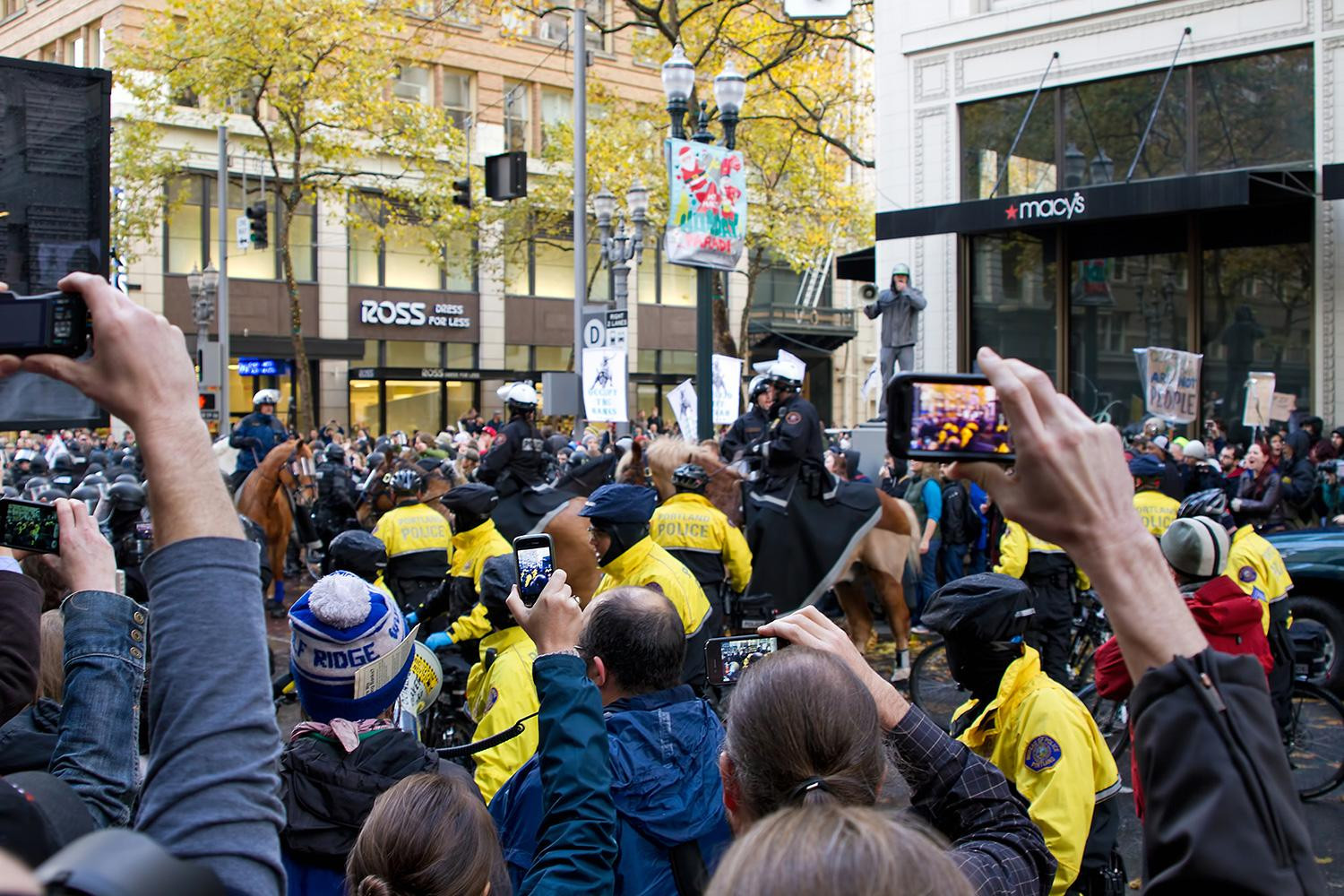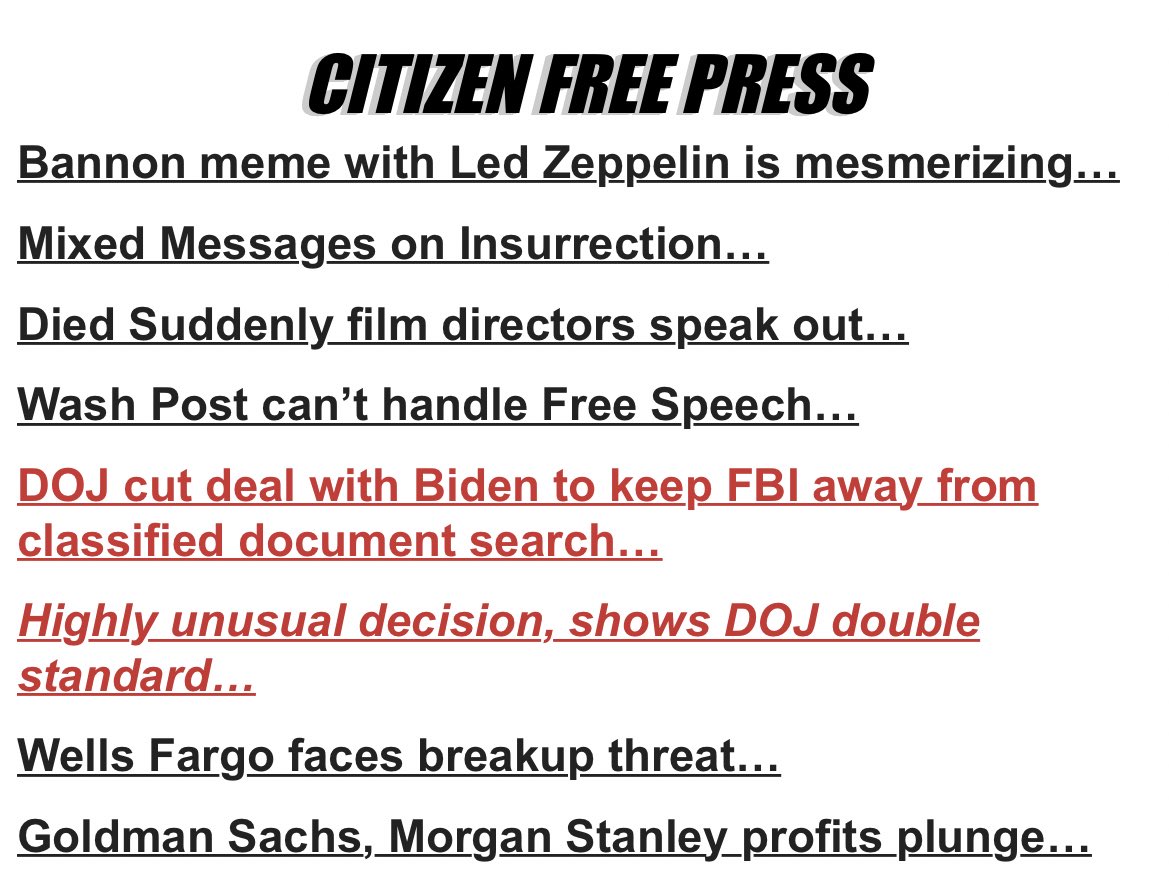In today's digital age, citizen free press has become a powerful force in shaping public discourse. With the rise of social media platforms and independent journalism, ordinary citizens have the ability to report news and share information with a global audience. However, this newfound freedom comes with challenges, particularly the issue of citizen free press bias. Understanding this phenomenon is crucial for anyone who consumes or produces news in the digital era.
Citizen free press bias refers to the tendency of individuals or groups to present news or information in a way that reflects their personal beliefs, opinions, or agendas. This bias can distort the truth and mislead audiences, making it essential to critically evaluate the sources of information. As we navigate the complex landscape of modern journalism, recognizing and addressing citizen free press bias is more important than ever.
This article delves into the world of citizen free press bias, exploring its causes, effects, and potential solutions. By the end, you'll have a clearer understanding of how bias manifests in citizen journalism and how to become a more discerning consumer of information. Let's begin by examining the basics of citizen free press and its significance in contemporary society.
Read also:Tan Songyun The Enigmatic Star And Her Mysterious Personal Life
Table of Contents
- What is Citizen Free Press?
- Citizen Free Press Bias Explained
- Causes of Citizen Free Press Bias
- Effects on Audiences
- Identifying Citizen Free Press Bias
- Solutions to Citizen Free Press Bias
- Case Studies of Citizen Free Press Bias
- Importance of Critical Thinking
- Future of Citizen Journalism
- Conclusion
What is Citizen Free Press?
The concept of citizen free press revolves around the idea that anyone, regardless of professional training or affiliation, can engage in journalism. This form of journalism empowers individuals to report on events, share opinions, and contribute to public discourse. The rise of digital tools and platforms has made it easier than ever for citizens to participate in this process.
History of Citizen Journalism
Citizen journalism has its roots in the early days of the internet, when blogs and online forums allowed people to share their perspectives with a wider audience. Over time, social media platforms like Twitter and Facebook have further democratized access to information, enabling citizens to report breaking news in real-time. This shift has challenged traditional media structures and expanded the scope of public participation in journalism.
Key Characteristics of Citizen Free Press
- Decentralized nature
- Focus on local or niche issues
- Varied levels of professionalism
- Increased accessibility
Citizen Free Press Bias Explained
Citizen free press bias occurs when individuals or groups reporting news allow their personal beliefs or agendas to influence the content they produce. Unlike traditional journalists who adhere to ethical guidelines and editorial standards, citizen journalists may lack the training or resources to maintain objectivity. This can lead to biased reporting that skews public perception of events.
Types of Bias in Citizen Journalism
There are several types of bias that can manifest in citizen free press:
- Confirmation bias: Reporting only information that supports pre-existing beliefs.
- Selection bias: Choosing sources or stories that align with a particular viewpoint.
- Language bias: Using emotionally charged or loaded language to sway opinions.
Causes of Citizen Free Press Bias
The causes of citizen free press bias are multifaceted and often stem from the unique challenges faced by independent journalists. Some of these factors include:
Lack of Training
Many citizen journalists lack formal training in journalism, which can result in a lack of understanding of ethical standards and best practices. This gap in knowledge can contribute to unintentional bias in reporting.
Read also:Exploring Jen Ledgers Personal Life Is She In A Relationship
Personal Agendas
Some citizen journalists may have specific political, social, or economic agendas that influence their reporting. This can lead to biased content that prioritizes certain narratives over others.
Effects on Audiences
The effects of citizen free press bias can be significant, impacting both individual perceptions and broader societal discourse. Audiences exposed to biased reporting may develop skewed views of reality, leading to misinformation and polarization.
Impact on Public Opinion
Biased citizen journalism can shape public opinion by reinforcing existing beliefs and creating echo chambers. This can hinder constructive dialogue and contribute to societal division.
Trust in Media
As bias becomes more prevalent in citizen journalism, trust in media as a whole may decline. This erosion of trust can have long-term consequences for democracy and the free flow of information.
Identifying Citizen Free Press Bias
Recognizing bias in citizen journalism requires a critical approach to consuming information. Here are some strategies for identifying bias:
Question the Source
Always consider the credibility of the source and the potential motivations behind the reporting. Cross-check information with multiple sources to ensure accuracy.
Look for Emotional Language
Biased reporting often uses emotionally charged language to evoke a response from the audience. Be cautious of articles that rely heavily on such language.
Solutions to Citizen Free Press Bias
Addressing citizen free press bias requires a combination of individual and systemic efforts. Here are some potential solutions:
Educational Initiatives
Promoting media literacy and critical thinking skills can empower individuals to better evaluate the information they consume. Educational programs can help bridge the gap in understanding between traditional and citizen journalism.
Platform Responsibility
Social media platforms and other digital outlets have a responsibility to promote accurate and unbiased content. Implementing algorithms that prioritize credible sources can help mitigate the effects of bias.
Case Studies of Citizen Free Press Bias
To better understand the impact of citizen free press bias, let's examine a few real-world case studies:
Case Study 1: Social Media Misinformation
During recent global events, social media platforms have been flooded with misinformation propagated by citizen journalists. These instances highlight the need for greater scrutiny and accountability in the digital age.
Case Study 2: Local Reporting
In certain regions, citizen journalists have played a crucial role in reporting on local issues overlooked by mainstream media. However, bias in these reports can distort the narrative and mislead audiences.
Importance of Critical Thinking
Critical thinking is essential for navigating the complexities of citizen free press bias. By approaching information with a discerning eye, individuals can become more informed and responsible consumers of news.
Developing Critical Thinking Skills
Practicing skepticism, questioning assumptions, and seeking diverse perspectives are key components of critical thinking. Encouraging these habits can lead to a more informed and engaged public.
Future of Citizen Journalism
The future of citizen journalism lies in striking a balance between accessibility and accountability. As technology continues to evolve, opportunities for innovation in this field will emerge. However, addressing the challenges of bias will remain a priority.
Potential Innovations
Emerging technologies such as artificial intelligence and blockchain could play a role in enhancing the credibility and transparency of citizen journalism. Exploring these possibilities can pave the way for a more trustworthy and inclusive media landscape.
Conclusion
Citizen free press bias is a significant issue that affects the quality and reliability of information in the digital age. By understanding its causes, effects, and potential solutions, we can work towards a more informed and balanced approach to journalism. As consumers and producers of news, it is our responsibility to critically evaluate the sources of information and promote ethical practices in citizen journalism.
We invite you to share your thoughts and experiences in the comments below. Additionally, consider exploring other articles on our site to deepen your understanding of media and journalism. Together, we can foster a more transparent and trustworthy media environment.

